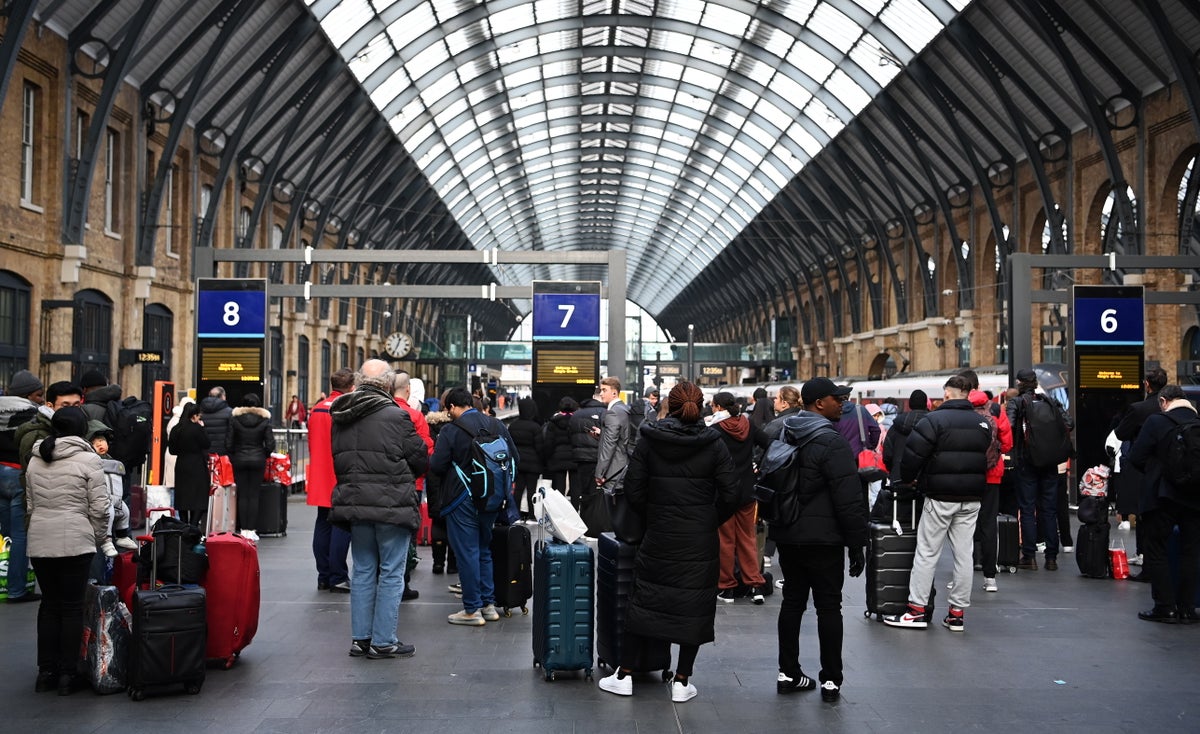
Unions have “a duty to coordinate” their strikes to save low-paid workers from going to food banks, the RMT boss says, ahead of a wave of pre-Christmas walkouts.
Nurses, ambulance drivers, post workers, bus drivers and driving examiners are set to join rail workers in industrial action, in what has been dubbed a “general strike” in all but name.
Ministers have condemned the “Christmas misery” ahead”, again threatening tougher laws to require minimum services are maintained on public services.
But Mick Lynch, the general secretary of the RMT rail union, said unions working more closely together were simply responding to “a general attack by the employers and by the government”.
“There is a generalised attack on working people where they’re having their wages lowered against inflation and often their conditions ripped up,” he told BBC Radio 4.
Mr Lynch said “impoverished” workers were turning to food banks and claiming benefits, adding: “The price of labour isn’t at the right price in this country and what the union’s got to do is correct that.
“If people are living on subsidy and living on food banks and other support mechanisms, they’re not being paid the right amount of money for their work.
“And that’s exactly what’s happenings in the railways. So the unions have a duty to coordinate what they do.”
Rail workers are now set to walk out from 6pm on Christmas Eve – curtailing services earlier on that day, Mr Lynch acknowledged – until 6am on December 27.
Strikes affecting 14 train companies are also due to go ahead next week, although talks will continue with the Rail Delivery Group on Tuesday.
Later on Tuesday, three unions are expected to announce co-ordinated strikes by ambulance drivers – while the Royal College of Nursing is planning to strike on 15 and 20 December.
Angela Rayner, Labour’s deputy leader, blamed a “militant” government for strikes on the railways, as she backed the workers’ right to take industrial action.
“The system is absolutely crumbling without the strikes. Anyone who gets on a train now in the North knows that you’re praying you’re going to get to where you need to get to,” she said.
“When I speak to the trade unions they’re very clear they do not want to go on strike, they want to resolve this dispute.
“It’s this government that seems to want to ratchet it up and want to attack workers’ rights and cause this disruption.”
But Nick Gibb, the schools minister, insisted the RMT was rejecting a “very good pay deal” worth 8 per cent over two years.
“The unions really should call off this strike. It’s inconveniencing people up and down the country in the run up to Christmas, I think it’s a very poor way of conducting negotiations,” he said.
“We would urge the unions to talk to employers, to keep negotiating and not to hold the country to ransom, particularly in December as we get nearer to Christmas.”







